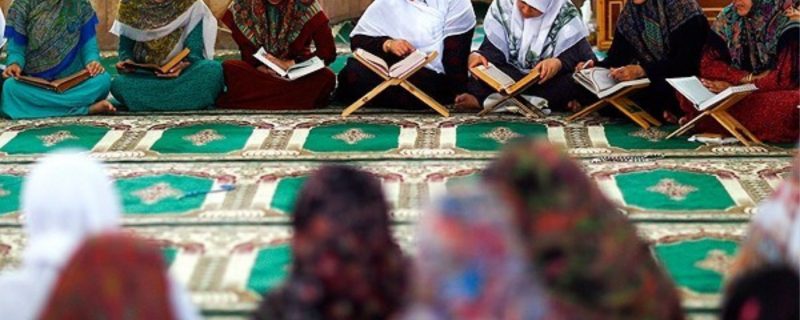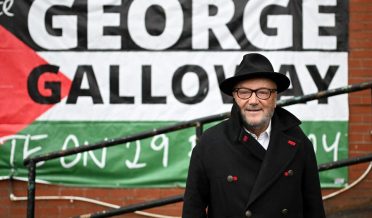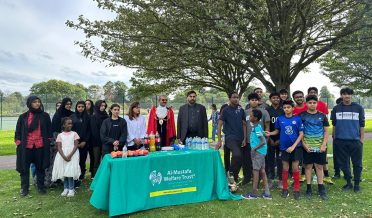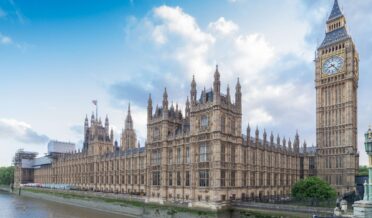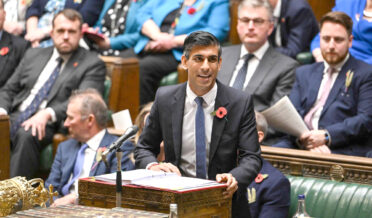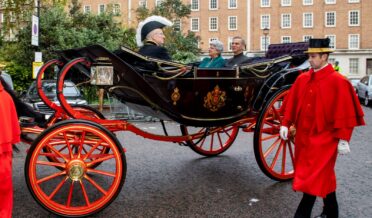
This year Ramadan will be from 11/12 April to 11/12 May 2021. It is the holiest month of the year for Muslims as it is when the Qur’an was revealed to the Prophet Muhammad (PBUH).
Muslims in UK and around the world fast during daylight hours, meaning they abstain from eating, drinking or engaging in ‘relations’ for the duration of their fast. Young children, pregnant women, the old, the sick and travellers are examples of those who are exempt from fasting. Muslims spend the month of Ramadan fasting during the daylight hours from dawn to sunset and is a time where families come together to celebrate. With the world turned upside down and many friends and families unable to come together in person, how will you celebrate Ramadan. This year, social media will play an important role in connecting people and building a sense of community online.
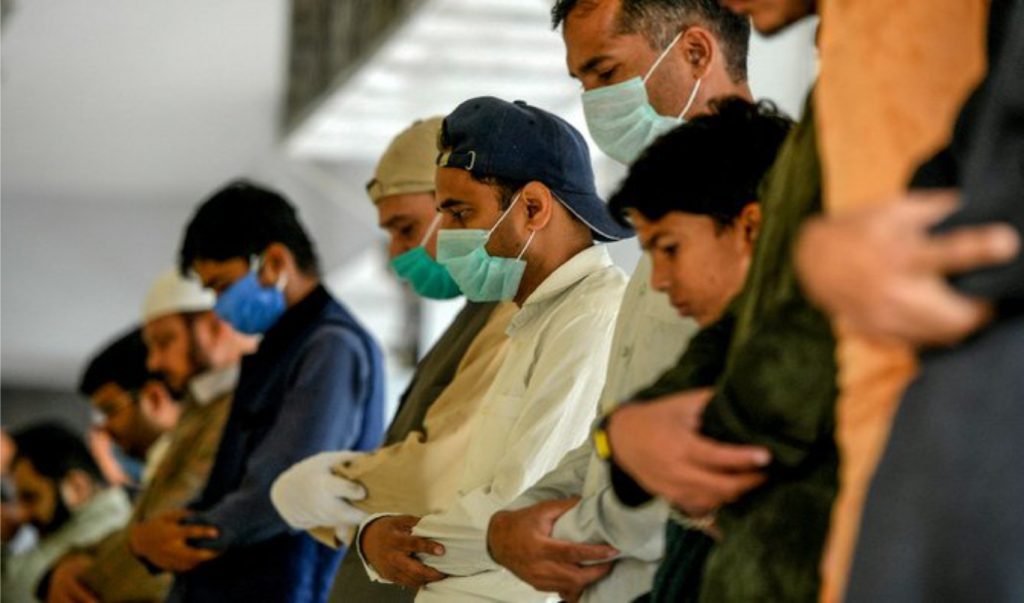
Basma Khalifa, one of our reader compiled these details which enlighten that the lockdown disrupts what Ramadan is all about – connection, being together, and enjoying family time, she explained: “This year technology is our best friend, when usually it’s the opposite.
“Normally I wake up to WhatsApps from friends and family around the world. “They send me funny memes and GIFs, and my aunts in Sudan or Saudi like to tag me in posts on Facebook too. “It’s quite sweet and means we all still feel connected no matter the age or location.” This year Basma will be using these resources more than ever during Ramadan.
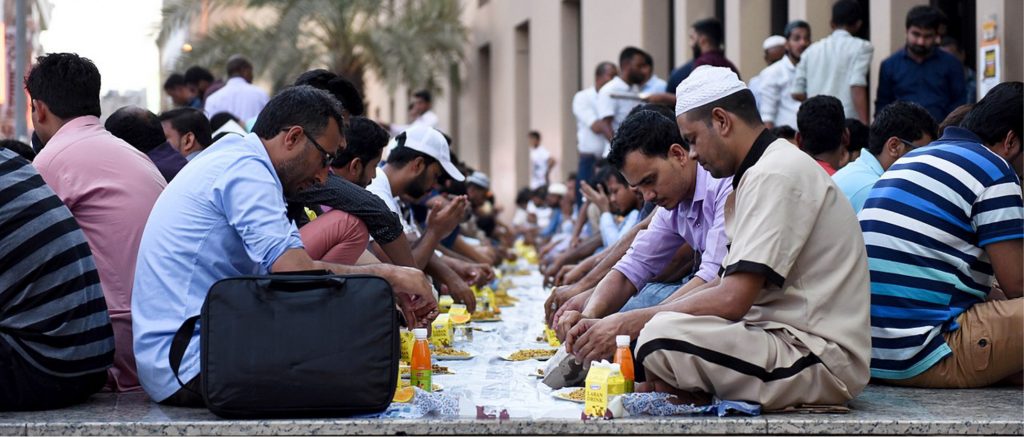
She said: “It’s fun to share funny things online and send constant streams of recipes and videos on WhatsApp and Facebook. Somali creative born and raised in East London, Sadly, due to lockdown a lot of people will be spending Ramadan alone and won’t even be able to visit the mosques as they will all be closed.
“Celebrating Ramadan in lockdown sadly means I won’t be with my friends and family, but we aren’t letting that get in the way of our beloved iftars! “Honestly, I think that this adds a new element to experiencing Ramadan and it will be really fun. “We’ve also been messaging and tagging each other a lot on Facebook, which has been a huge help in staying connected. “Different cultures and ethnicities put their own twist on Ramadan celebrations, the creators explained. “London is so full of culture and has so many ethnicities that enjoy Ramadan in their own way, but what’s so heart-warming to me is that a lot of my non-Muslim friends will take part in Ramadan and join us for iftar.
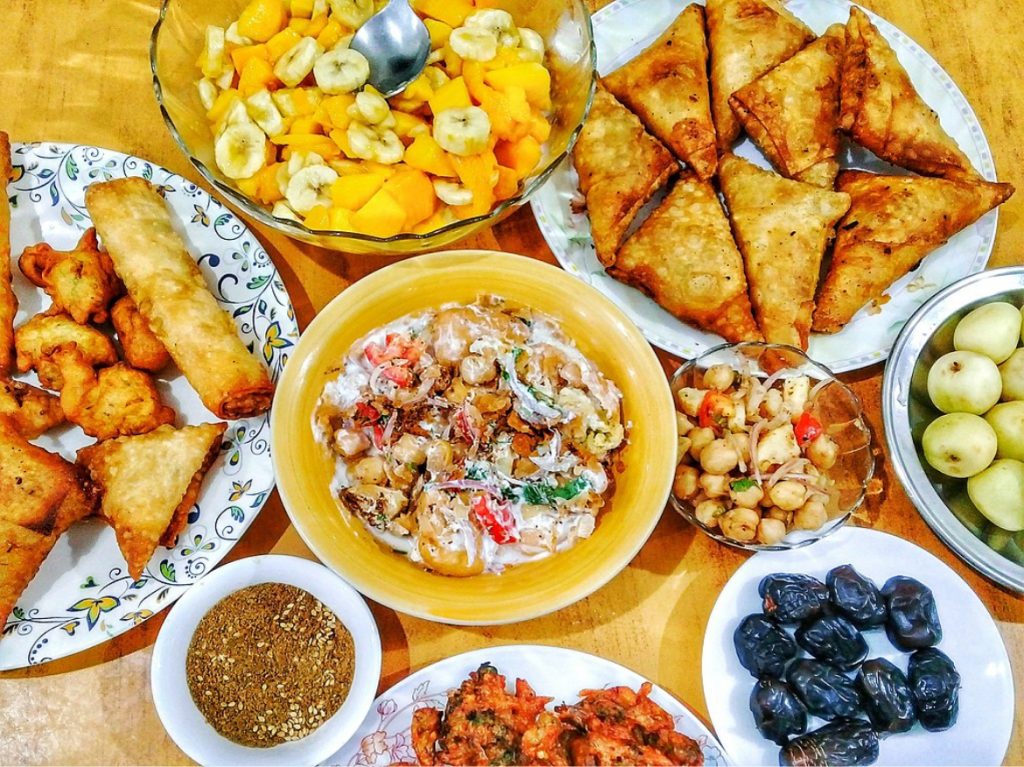
But addition to this kind of busyness of the younger generation, celebrating Ramadan in a different country and away from your family can be very difficult, and it can be particularly challenging if you are trying to adapt to a Western culture during your studies. The fasting hours in the UK can last for up to 19 hours, making the days longer than they would be in your home country. Luckily, Britain has a large Muslim community that celebrates Ramadan every year, so you are not alone! Here are my three tips for coping with fasting this summer…
1. Get involved with the Muslim Community with the government guidelines of coronavirus pandemic.
Whether you are living in a lively capital like London or a warm and welcoming other city of UK, you will find Mosques nearby where you can go to pray every day during Ramadan. You could go to your local Mosque with other people where you will meet many other Muslims taking part in the Tarawih prayers.
2. Go for Iftar with your classmates.
One of the great advantages of living in the UK is that it is very multicultural. Wherever you live, you will be able to find restaurants nearby that offer everything from traditional Middle Eastern and Mediterranean cuisines to classic Italian restaurants. If you are lucky to be living in the vibrant city of UK like Manchester, Birmingham, Bradford, Sheffield, Luton even in many parts of London the Curry Mile is a famous street well known for its South Asian and Middle Eastern food.
If you are living in London, its recommended visit Edgware Road. Famous for its distinctive Middle Eastern character, Edgware Road is well known for its Lebanese Restaurants, Middle Eastern Shops and shisha cafes that are open late at night.
If you would prefer a quieter option to break your fast, you will find that all of us INTO centres will be sociable during Ramadan and students will get together and break their fast together.
If you want to explore the city that you are living in, you will also find that many Mosques and Islamic centres across the country will be cooking meals throughout July. This will be a good opportunity for you to mix and socialise with other Muslims taking part in Ramadan.
3. Remember to Relax.
While life tends to slow down in Islamic countries during Ramadan, this will be different in the UK and everyday life will continue as normal. While your studying is essential, it is important to remember to take some time to relax.
Spend some time with your friends, read a book, pray or watch a film. If you are missing your family during Ramadan, you can take some time to Skype them after Iftar. Whether your classmates are Muslim or not, you will find that they will be very welcoming, interested in Ramadan and supportive of you. I have a huge extended family so Eids are a big celebration for us, when we wake up super early and go to the Eid prayer. The last few years we have gone to them in the park, which is beautiful. After that we go to my grandmother’s house and she makes a massive breakfast of all sorts of Pakistani food. We go back to my grandmother’s house for dinner as well. Because traditionally grandmothers always host Eid and cooks up lots of traditional dishes.
In Ramadan it is easy to feel very spiritual and very connected. There is a routine – you are fasting together; you are all praying together. But it is only after Ramadan you see whether it is kicked in, whether the habits have been kept up – praying on time, being patient, being kind. Eid is supposed to be a spiritual day as well, it is not supposed to be about just eating and having a good time. There is a lot of spirituality to reap in it. A big part of Eid is giving. The prophet commanded all Muslims to give a portion of barley and grain to the poor. We cannot give barley, so we give money to charities instead. It is not compulsory, but it is recommended that you give to charity before we make it to the mosque. We have prayer at 10 o’clock in the morning and every single Muslim would go to the mosque to pray. In the mosque you see all those people you do not normally see, people you went to school with and new neighbours. When the prayer is finished, it does not matter who is next to you – black, white, young, or old, if you know each other or not – everyone hugs each other three times and says: “Eid Mubarak”. It is the best feeling, the sense of unity, the sense of brotherhood. You are hugging for about 20 to 30 minutes. People just keep coming up to you and hugging. (if the NHS and government guidelines allows)
Despite of everything the true meaning/message of Ramadan is the Muslim month will start within few days, it offers to any true seeker a self-reflective course that has the power to bring a revolution of the heart and help restore justice, peace and harmony in the world. Ramadan is the embodiment of reflection, revelation, revolution, and restoration. Prophet Muhammad (peace be upon him) began his journey into prophethood through reflection within. He was searching for a broader meaning in life that would restore justice and peace in society. He was looking for an answer that would transcend the need for material survival and transform humanity into a spiritually wholesome state. He reflected and meditated, spending many years in the sanctuary of a remote cave, surrounded by steep, barren, mountains situated in the outskirts of Mecca. Finally, he received the answers in the form of divine revelations. It was in the ninth month of the Arabic calendar, known as Ramadan.
The very first word of the revelation was “Iqra” or “read” and each chapter of the entire revelations known as the Quran began by invoking ‘the most merciful’ and ‘the most compassionate’ attributes of God. Ramadan opened the door to the illuminated message that Prophet Muhammad would continue to receive for the next twenty-three years of his life. The ignorant and barbaric Arab society, where it was custom among some tribes to bury female children alive, was transformed. The revelations brought forth an extraordinary revolution of the heart in which blossomed the fragrant flowers of mercy and compassion – the essential building blocks for a just and civilized society. The very first message, “Iqra,” inspired an ignorant nation to glean knowledge from all aspects of life, and then inspired them to share it with others, irrespective of creed, colour, or gender for the common good of humanity. The seed of this remarkable transformation of a people was planted in the month of Ramadan fourteen hundred years ago.
Muslims all over the world celebrate Ramadan, one of the five pillars of Islam, by refraining from food, water, and conjugal relationship from dawn to dusk (sick, elderly, pregnant women, and travellers are not required to fast). Generally, Muslims break their fasts with dates, following the tradition of Prophet Muhammad, then dinner. People cook dinner according to their own cultural tradition.

